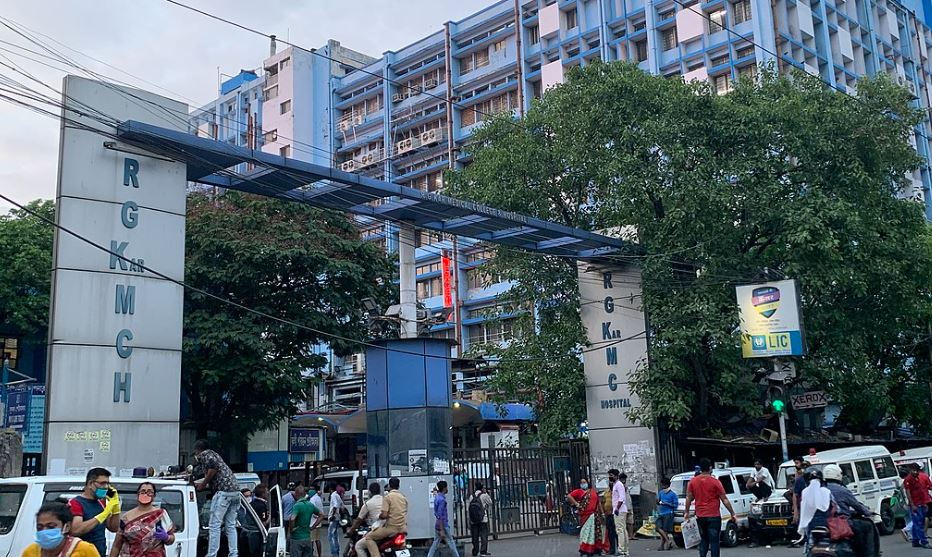A Night of Defiance: Kolkata’s Midnight March for Justice
On the night of September 4, 2024, Kolkata experienced a powerful display of public outrage and solidarity as hundreds of thousands of women participated in a midnight march. This significant event, part of the “Reclaim the Night” campaign, was organized in response to the horrific rape and murder of a 31-year-old trainee doctor at RG Kar Medical College and Hospital on August 9. The march was not merely a protest but a call for systemic change and justice, highlighting the deep-seated frustrations with how such cases are handled by authorities.
The “Reclaim the Night” Campaign: Origins and Objectives
The “Reclaim the Night” campaign is an international movement aimed at addressing violence against women and ensuring safer public spaces. It originated in the late 1970s in the UK, with women marching to reclaim the streets from violence. The Kolkata chapter of this campaign has gained significant momentum, particularly after the tragic incident at RG Kar Medical College and Hospital. The primary objectives of this movement are to raise awareness about sexual violence, demand justice for victims, and advocate for systemic reforms to prevent future atrocities.
The Kolkata midnight march saw participants carrying banners and candles, symbolizing their demand for justice and highlighting the urgent need for societal change. The event was marked by its peaceful nature, with women from various backgrounds coming together to voice their grievances and call for action. The sheer scale of the protest underscored the widespread anger and frustration felt by the community over the mishandling of the case by local authorities.
Mathabhanga Controversy: Violence Erupts Amidst the March
While the midnight march in Kolkata was largely peaceful, the situation took a violent turn in Mathabhanga, a town in the West Bengal region. Reports indicate that tensions escalated when a protester was allegedly assaulted by members of the Trinamool Congress (TMC), a prominent political party in the state. This incident has sparked controversy and drawn criticism from various quarters, complicating the narrative surrounding the “Reclaim the Night” campaign.
The violence in Mathabhanga has raised concerns about the role of political entities in social movements. The involvement of TMC members in the assault has led to accusations of political interference in what was intended to be a peaceful protest. This development has further fueled public outrage and intensified calls for accountability and transparency in how such cases are handled.
Political Reactions: Governor’s Call for Action
In response to the widespread protests and violence, West Bengal Governor CV Ananda Bose issued a statement urging Chief Minister Mamata Banerjee to take “convincing steps to assuage the sentiments of the people.” The governor’s call for action reflects the growing pressure on political leaders to address the public’s dissatisfaction and demand for justice. The statement highlights the need for a comprehensive response to the concerns raised by the protesters and the broader community.
Chief Minister Mamata Banerjee’s response to the situation will be crucial in determining how effectively the government addresses the demands of the protesters. The governor’s intervention underscores the importance of political leadership in navigating the complexities of social movements and ensuring that the grievances of the public are addressed in a meaningful way.
Debates on Anti-Rape Legislation: Calls for Reform
The tragic case at RG Kar Medical College and Hospital has reignited debates about India’s anti-rape legislation. Critics argue that Bengal’s anti-rape bill is insufficient in addressing the root causes of sexual violence and ensuring justice for survivors. The ongoing debate highlights the need for comprehensive legal reforms to improve the effectiveness of the legal system in handling such cases.
The call for reform is driven by the belief that existing laws and procedures are inadequate in addressing the complexities of sexual violence. Advocates for change argue that the legal system must be strengthened to provide better support for survivors, ensure accountability for perpetrators, and prevent future crimes.
Broader Implications of the Kolkata Midnight March
The Kolkata midnight march has broader implications beyond the immediate context of the RG Kar Hospital case. It signifies a growing movement against gender-based violence and highlights the need for systemic changes in how such cases are addressed. The protest has also brought to light the complexities of political involvement in social movements and the challenges of achieving meaningful change.
The march has served as a catalyst for broader discussions about women’s safety and the effectiveness of legal and political responses to violence. It underscores the importance of continued advocacy and activism in driving systemic change and ensuring that the voices of survivors and activists are heard.
Conclusion: The Path Forward for Kolkata and Beyond
As Kolkata grapples with the aftermath of the midnight march and the associated controversies, it is clear that the demand for justice and systemic change remains strong. The tragic incident at RG Kar Medical College and Hospital has highlighted the urgent need for reforms in both the legal system and societal attitudes towards gender-based violence.
Moving forward, it will be crucial for both governmental and non-governmental entities to address these issues with the seriousness they deserve. The continued advocacy and activism of the “Reclaim the Night” campaign and other similar movements will play a vital role in shaping the future of women’s safety and justice in Kolkata and beyond.
The Kolkata midnight march has demonstrated the power of collective action and the importance of addressing systemic issues related to gender-based violence. By continuing to engage in meaningful dialogue and pushing for reforms, activists and advocates can work towards creating a safer, more just society for all.
Soumya Smruti Sahoo is a seasoned journalist with extensive experience in both international and Indian news writing. With a sharp analytical mind and a dedication to uncovering the truth, Soumya has built a reputation for delivering in-depth, well-researched articles that provide readers with a clear understanding of complex global and domestic issues. Her work reflects a deep commitment to journalistic integrity, making her a trusted source for accurate and insightful news coverage.



